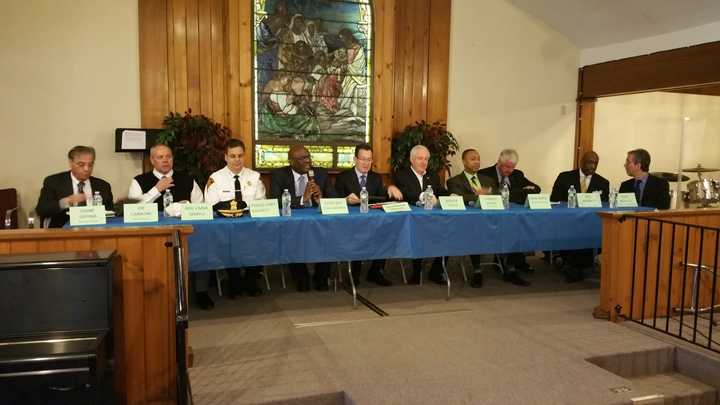Participants filled East End Baptist Tabernacle Church on Central Avenue on Feb. 4 to learn how “Second Chance Society” will work to continue the progress made to reduce Connecticut’s crime rate, which Malloy said is “three times the national average for falling crime rates.”
One major initiative of the program would make all drug possession charges, besides evidence proving intent to sell, a misdemeanor.
“We’ve done some other things in Connecticut that are helping us concentrate on what we need to concentrate on, and that’s violent crime,” Malloy said. “One of the most important [things we’ve done] is come to grips with the issue of marijuana possession.”
In 2011, the state decriminalized the possession of small amounts of marijuana. Before then, possession of the schedule one drug was always handled as a criminal offense, leading to many arrests that tied up the judicial system, according to Malloy.
Although the 2011 bill has lead to 8,000 fewer arrests for marijuana possession in the last four years, those at the roundtable Thursday agreed there is still much work to be done.
Through the Second Chance Society initiatives, administrative and legislative actions, Malloy plans to eliminate minimum sentences for drug possession -- at a judge's discretion; improve the expedited pardon process; and invest in housing and work programs to help those who have served time to integrate back into society.
“When we send someone to jail, who could better be served by other treatment … and particularly when we send younger people to jail for the first time in their lives,” Malloy said. “They’re more likely to come out as professional criminals than folks who have changed their behavior.”
A major initiative of Second Chance Society is for the first time renaming correctional facilities as community reintegration centers, according to state Correction Commissioner Scott Semple.
“It will be designed for male offenders and it will be located in the northern part of the state,” Semple said Thursday. “The idea here is to fix a lot of issues that constantly come to bear in terms of how we prepare people to go back into the community and improve upon their successes.”
The idea is to begin with the male population, then expand to the female and special needs populations.
Earl Burns, a 58-year resident of Bridgeport, agreed that counseling, rehabilitation and reintegration are more important than arrests and incarceration.
“These issues of drug-related offenses effects minorities in our neighborhoods here. We struggle already, but with a record it’s even harder,” Burns said. “I don’t think locking them up and throwing the key away counts as rehabilitation.”
Click here to follow Daily Voice Bridgeport and receive free news updates.
